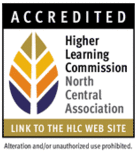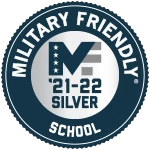Download a Free
UW Flexible Option Info Kit
Overview
The Business and Technical Communications Certificate offered through the UW-Milwaukee College of Letters & Science provides a curriculum that will enable students to develop exceptionally strong writing and communication skills. In today’s economy, it is more important than ever for workers to be multi-skilled and flexible in their professional areas. The Business and Technical Communications Certificate combines an innovative approach with practical skills in writing, research, communication, and technologies that will enable students to improve their skills for working in a broad range of contexts.
The UW Flexible Option is especially designed for self-motivated nontraditional students who want to use their previous schooling, work skills, and prior knowledge as a foundation for a degree or certificate. The competency-based and self-paced format of the UW Flexible Option fits the schedules of students who must balance work and family responsibilities with educational goals.
Who Should Apply
This program is ideally suited for:
- Individuals who wish to develop strong written communication skills
- Students who seek professional training and education to advance their careers
- Motivated, disciplined self-starters who can work independently
- Anyone who desires the prestige and value of a University of Wisconsin education
About the UW-Milwaukee English Department
The competencies and assessments for this certificate were developed by the English department at the University of Wisconsin-Milwaukee which offers programs emphasizing outstanding research scholarship and innovative pedagogy in Literature and Cultural Theory; Rhetoric and Composition; Creative Writing; Professional Writing; and Media, Cinema and Digital Studies.
Accreditation
University of Wisconsin-Milwaukee is accredited by the Higher Learning Commission of the North Central Association of Colleges & Schools.
Meet Our Faculty
Curriculum
Students will develop competencies in communication that are critical to a wide range of contemporary jobs and organizations:
- Business and technical communication
- Strategic writing skills
- Organizational leadership skills
- Information design
- Project management
You must complete all 6 of these courses (18 credits) to earn this certificate.
ENGLISH 206X—INTRO TO BUSINESS AND TECHNICAL COMMUNICATION
Assess and address rhetorical situations
- Research and assess audience, purpose, and context, using local, organizational, national, cross-cultural, and global perspectives
- Select appropriate communication channels and media
- Select appropriate logical and rhetorical strategies (e.g., arguments of fact, policy, worth, expediency)
Write clearly for audience, purpose, and context
- Write with effective style, demonstrating knowledge of plain, passive, and persuasive approaches and good use of tone, word choice, vocabulary, and level of information
- Maintain mechanical and grammatical correctness
- Demonstrate ability to write effectively for international audiences, ESL audiences, and translation
Demonstrate effective self-presentation skills
- Understand the role, possibilities and norms of speech, including examples of digital orality (e.g., IM, SMS, social media) in public face to face and online interactions
- Able to take an ethically defensible, dialogic stance
- Able to deliver an effective presentation online and F2F
Master professional and technical genres
- Demonstrate understanding of genres (e.g., letters, memos, social media posts, technical descriptions, instructions, proposals, multiple kinds of reports), including rhetorical purpose, common traits, and organization
- Format and effectively structure documents using appropriate professional tools
- Conduct effective research and make effective and ethical use of sources and documentation (APA, MLA, etc.)
ENGLISH 428X—STRATEGIC WRITING FOR ORGANIZATIONS
Understanding crisis communication
- Demonstrate understanding of systems perspective on communication
- Analyze crisis situations in terms of pre-crisis, crisis event and post-crisis
- Evaluate responses to crisis situations, by organizations and individuals
Apply theories of strategic communication planning
- Identify and explain theories of strategic communication
- Analyze possible applications of relevant communication theories
- Compare and contrast various communication theories for their usefulness in message development
Manage stakeholders and organizational issues
- Understanding stakeholder groups relative to specific organizations and issues
- Analyze relationship between specific crises and stakeholders
- Create responses to specific crises relative to relevant and appropriate stakeholders (for organizations, issues and individuals)
Develop communications plans for organizations
- Identify the components of an organizational communication plan
- Analyze and evaluate examples of organizational communication plans
- Creating functional organizational communication plans for organizations
ENGLISH 429X—TECHNICAL COMMUNICATIONS AND ORGANIZATIONAL LEADERSHIP
Analyze group processes from the perspective of a member and a leader
- Assess a given situation and determine appropriate leadership strategies, taking into consideration the charge and the modality (ex. FTF, Skype, e-mail)
- Understand the functions of different group member roles and how they enhance group process
- Justify choices about role-taking and communication strategies in the group setting
Demonstrate understanding of specific audiences and message design choices
- Apply knowledge of communication norms to a variety of professional situations
- Make reasoned decisions about communication choices
- Demonstrate knowledge about the importance of communicating appropriately, effectively, and ethically
Describe effective and efficient collaboration relative to writing projects
- Effectively and efficiently delegate responsibilities to other group members in a computer-mediated context and face-to-face when assigned a leadership role
- Manage others in the process of revising and editing group work
- Effectively use online collaborative tools (e.g., Google Docs)
Explain how conflict resolution strategies apply to the technical communication process
- Analyze conflict situations in workplace projects and identify possible management strategies
- Identify potential strategies for de-escalating conflict among members of a group working on a project
- Analyze how feedback is used in order to respond productively to conflict that arises in task groups
ENGLISH 435X—ADVANCED BUSINESS AND TECHNICAL COMMUNICATION
Master all phases of document life cycles
- Self-reflectively manage drafting and revising
- Conduct and manage multiple levels and types of editing
- Manage documents, including cycling, tagging, storing, and retrieving
Demonstrate skill in researching business cases
- Define research subjects and formulate questions/hypotheses
- Develop research methodology and triangulate data collection
- Evaluate, synthesize, and compile information from multiple text and online sources
Master document testing
- Define metrics that will indicate the success of documents
- Design and conduct evaluations that will test documents against those metrics
- Synthesize, analyze, present, and implement test results
Demonstrate advanced writing and presenting skills
- Articulate and apply knowledge and importance of copyright, trademarks, patents, privacy, and proprietary information
- Employ rhetorical strategies for effective visual and document design
- Reflect on and justify composing processes and rhetorical decisions
ENGLISH 437X—PROJECT MANAGEMENT
Master project definition and analysis
- Define project phases and project manager roles
- Identify project audiences, purposes, and goals
- Plan for project requirements and constraints
Master project scheduling
- Determine tasks and time frames
- Delegate work
- Create planning charts
Master strategies for project control
- Monitor project quality and progress
- Manage project risk and change
- Resolve project difficulties
Master leadership and team management
- Develop skill in project leadership
- Learn effective strategies for team management
- Monitor team communication and collaboration
ENGLISH 439X—INFORMATION DESIGN
Analyze and critique information designs
- Analyze design situations, relying on research from rhetoric, cognitive psychology, and graphic design
- Employ framework of principles (such as Williams’s contrast, repetition, alignment, and proximity) to evaluate paper and electronic designs
- Use common design terminology related to layout, typography, information architecture, and graphic elements
Design effective graphics, tables, and other visuals
- Identify and appropriately utilize tools and methods for design and publishing
- Plan and implement usable design solutions to information problems
- Test and evaluate design effectiveness
Design effective interfaces and documents
- Identify and use appropriate tools and methods for design and publishing
- Research and develop solutions for design problem
- Design layouts, typography, and graphic elements needed for implementation
Design effective information architectures
- Identify and use appropriate tools and methods for design and publishing
- Research and develop solution for structure/architectural problem
- Design layout, architecture, metadata, and other elements required for implementation
Tuition
The UW Flexible Option offers working adults – like you – a more affordable way to finish a degree. Your coursework takes place in subscription periods – rather than semesters. These subscription periods start every single month, and are approximately 12 weeks long.
Instead of paying based on your course or credit load, you choose between two flat rate tuition plans. Our unique subscription period structure and flat-rate tuition model means you are in control of both your schedule and your cost.
- All-You-Can-Learn Option: Choosing this option allows you to enroll in as many courses as you have time for within the subscription period for a flat tuition rate of $2,250. You can add additional courses in your subscription period if you finish others early.
- Single Course Option: You may also decide you would like to focus on just one course at a time. The tuition for this option is $1,125. In this option, you are not eligible to add additional courses during your subscription period if you finish the first one early. In this case, you must wait until your next subscription period to add additional courses.
| Subscription Option | Courses you can take | Tuition |
| All-You-Can-Learn | 2 or more | $2,250 |
| Single Option | 1 | $1,125 |
You can switch back and forth between these tuition options when you start a new subscription period. For example, perhaps over the summer you do the Single Course option because your family is home on summer break, but once the kids go back to school in the fall you switch to the All-You-Can-Learn option.
Are there any additional fees? There are no segregated fees with this program, which saves you hundreds of dollars per credit hour. However, your tuition does not include the cost of textbooks or other special materials that may be required for individual courses.
Students who enroll in this program as a stand-alone certificate are not eligible for financial aid. If you are earning this certificate as part of your enrollment in another UW-Milwaukee bachelor’s degree in the UW Flexible Option, reach out to our financial aid team to discuss your options.
Admission
To pursue the Business & Technical Communications Certificate Program, you must have successfully completed a second-level college English composition course or satisfy this through placement exam following admission, or CLEP (College-Level Examination Program)—equivalent to English 102 or College Writing II.
- To be considered for admission, candidates must have a high school diploma, GED, or High School Equivalency Diploma (HSED). Students with transferable college credit should have a cumulative GPA of 2.00 or higher.
NOTE: Prior college transcripts from which you may transfer credit must be accredited by a regional or national accrediting organization recognized by the CHEA (Council for Higher Education Accreditation).
Schedule an advising call at 608-800-6762 or contact us at flex@uwex.wisconsin.edu to learn more about our certificate programs.
How to Apply
- You may apply up to five months in advance of your desired start date. See Steps to Apply.
- If previously enrolled in Flex, please review our returning student admissions process.
Still have questions? Check out our Admission FAQ page.


